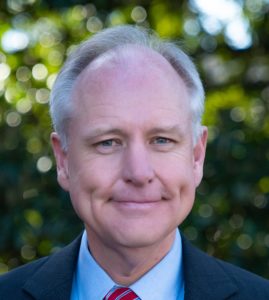This fall the Cooperative Baptist Fellowship will begin a process of what leaders call strategic and spiritual discovery, the Decatur, Georgia, based organization announced Oct. 7.
The launch of “Toward Bold Faithfulness: Discovering and Responding to God’s Call Together” comes on the heels of the recent fall meeting of the CBF Governing Board.

Paul Baxley
CBF Executive Coordinator Paul Baxley said Monday the process is based on “the most generous understanding” of the definition of CBF – one including not only the Decatur staff but also churches, field personnel, chaplains, state and regional organizations, theology schools and other network partners in seeking to “discover what our calling together is.”
“While recognizing each congregation has its unique sense of calling, we also believe there is a kind of ministry we can do together for which the CBF is uniquely equipped,” Baxley said. The discovery process, he said, will seek to answer “what are the things we feel the greatest calling for?”
The initiative – led by a Discovery Team co-chaired by Baxley and CBF moderator-elect Carol McEntyre, pastor of First Baptist Church in Columbia, Missouri – seeks to foster “dynamic collaboration,” a term used in the corporate world to describe the sharing of information and ideas, discovering who else in the organization is working on the same issues, increasing productivity and solving problems that otherwise wouldn’t get solved.
Baxley, a former pastor elected to lead CBF in January, cited a parallel from New Testament book of Philippians where the apostle Paul describes a “partnership” in the gospel rendered in Greek by the word koinonia. Baxley defined it as “a life-giving, mutually necessary relationship to fulfill a calling in the world that we cannot fulfill without each other.”
In visiting around the country his first months on the job, Baxley said he found “that we all have a temptation to a definition of CBF that is not generous enough,” viewing the movement from silos such as the Decatur office, global missions, the nearest state or regional CBF organization or a particular theology school or ministry partner.
Baxley said the process is not intended to repeat a top-to-bottom restructuring of the CBF undertaken in 2012, but he could not rule out the possibility that it might result in organizational change.
Prior to his hiring at CBF, Baxley served as a member of the CBF Governing Board and was involved in the Illumination Project, a problem-solving process completed in 2018 attempting to prevent the movement from splitting or splintering over the thorny issue of LGBT inclusion.
The initiative started out with similar aims of discernment and promoting a “big-tent” culture across the Fellowship, but Baxley said he anticipates Toward Bold Faithfulness will be different.
“I think this is a very different kind of journey than that,” he said. The new initiative seeks to answer “what is the shared calling that doesn’t just bind us together but gives us energy in new ways?” He said questions going into the process include assessing existing gifts, mutual needs and “the way we feel the Holy Spirit at work within us.”
“I do think this process is clearly interested in both discovering a sense of calling that can unite us now, but also help us foster an ongoing culture of discovery, responsiveness, faithfulness, energy and dynamic collaboration.”
The plan calls for an online survey, telephone and video conference conversations and face-to-face meetings. The Discovery Team plans to listen to both clergy and laity, as well as those who do not attend a CBF congregation.
An update on discovery outcomes is expected in spring or summer, with a goal of completion by the CBF General Assembly in 2020. The discovery process will then be followed by the response phase.
